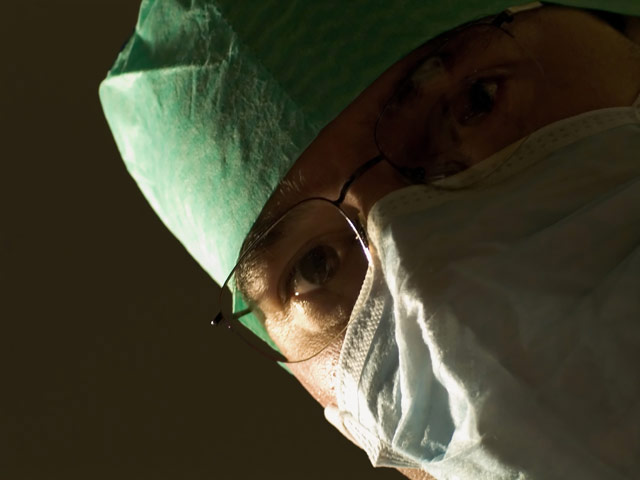Risk of Death Can Soar When Spouse is Sick

When a person over 65 is debilitated, the odds of dying within a year can increase dramatically for the spouse, a new study shows.
If a man is diagnosed with dementia, for example, the risk of death skyrockets 28 percent for his wife over the next year. If it's the woman who suffers dementia, the husband's death risk climbs 22 percent.
The increase in risk varies dramatically by condition, however. The partner of a spouse hospitalized for cancer typically incurs no heightened odds of death. For a stroke, the risk to the partner goes up about 5 percent.
The differences depend largely on how disabling a condition is, explained study leader Nicholas Christakis of Harvard Medical School. People with cancer often function relatively normally between treatments, while dementia patients require constant care.
"Diseases that are very mentally or physically disabling are really harmful to the spouse,"Christakis said in a telephone interview. "Families should be aware. ‘Gee, Grandpa is sick. Boy that's bad for Grandma.'”
Previous studies have shown that the loss of a loved one can help spell the end for a partner. But no one has done a comprehensive study on how illness alone affects a spouse.
The new study examined the records of more than 1 million people (518,240 couples) who were on Medicare in 1993. Over the next nine years, more than two-thirds of them were hospitalized and more than one-third died. The results are detailed in the Feb. 16 issue of the New England Journal of Medicine.
Sign up for the Live Science daily newsletter now
Get the world’s most fascinating discoveries delivered straight to your inbox.
"This highly innovative study—in an enormous sample of older people—demonstrates yet another important connection between social networks and health," said Richard Suzman, associate director of the National Institute on Aging, which supported the research. "We don't yet know the full extent to which social networks affect health. We need to explore the mechanisms behind the stresses.”
The study confirms the "widower effect" that has been shown in other research. For those over age 65, the death of a wife increases a husband's risk of death 53 percent for 30 days, and the death of a husband increases his wife's risk by 61 percent during that month, according to the new study.
The widower effect over one year amounts to a 21 percent increased risk of death to a surviving husband and 17 percent for a surviving wife.
But the most significant findings are the social effects of mere hospitalization.
"Over the first 30 days it can be almost as bad for you to have a sick spouse as a dead spouse," Christakis said.
Spouses suddenly charged with providing more care can be just as suddenly without social, emotional or economic support, Christakis points out. They might start drinking or engage in other harmful behaviors. Stress can weaken their immune systems.
Christakis said doctors should be mindful of these risks to a patient's spouse. And the findings might play into how health care decisions are made. Hip replacement surgery, for example, could be viewed as being more beneficial if it stands to save two lives rather than just one, he suggested.
- The Odds of Dying
- Test Helps Predict Your Chances Of Dying
- Odds of Survival Much Higher at Top US Hospitals
- Dying Wishes Vary by Culture and Gender
- Why Some Old Lovers Look Alike
Robert is an independent health and science journalist and writer based in Phoenix, Arizona. He is a former editor-in-chief of Live Science with over 20 years of experience as a reporter and editor. He has worked on websites such as Space.com and Tom's Guide, and is a contributor on Medium, covering how we age and how to optimize the mind and body through time. He has a journalism degree from Humboldt State University in California.










